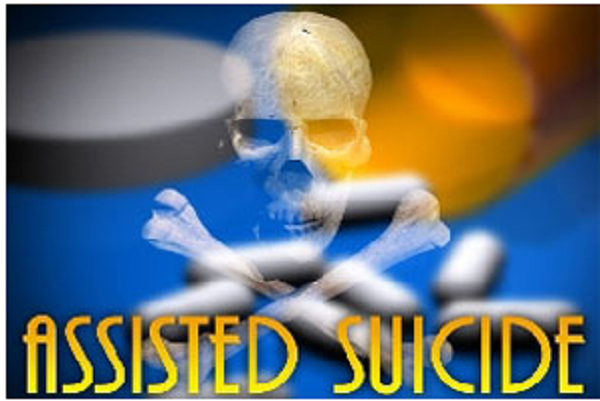The Canadian Supreme Court has struck down Canada’s ban on assisted suicide, saying it violates the right to life of terminally ill people.
The Supreme Court of Canada released its decision today in the Carter case concerning Canada’s laws that protect people from euthanasia and assisted suicide. The court ruled that people have a right to kill themselves with assistance from a physician.
The bringers of the court case say that Kathleen (Kay) Carter achieved the kind of death at a Switzerland euthanasia clinic operated by Dignitas that Canadians should have the right to access. The lawsuit is challenging Criminal Code sanctions that make physician-assisted suicide illegal.
“Insofar as they prohibit physician‑assisted dying for competent adults who seek such assistance as a result of a grievous and irremediable medical condition that causes enduring and intolerable suffering, ss. 241 (b) and 14 of the Criminal Code deprive these adults of their right to life, liberty and security of the person under s. 7 of the Charter,” the ruling said.
“The right to life is engaged where the law or state action imposes death or an increased risk of death on a person, either directly or indirectly. Here, the prohibition deprives some individuals of life, as it has the effect of forcing some individuals to take their own lives prematurely, for fear that they would be incapable of doing so when they reached the point where suffering was intolerable,” it said.
Mark Penninga, Executive Director of ARPA Canada,told LifeNews: “A sacred line has been crossed. This decision turns the right to life from something that is objectively fixed and inviolable to something that is subjectively fluid and based on what someone feels it is worth.”
In its ruling, the Canadian high court “suspended its ruling for 12 months to give the Canadian government, medical regulatory bodies and the provinces a chance to draft new laws and policies around assisted dying. It said doctors have the ability to address whether an individual is capable of consent,” according to news reports.
“It will be logically impossible for Parliament or any legislature or court to enact safeguards that will be able to withstand future legal challenges. As we see in Belgium and the Netherlands, it is only a matter of time before these so-called safeguards are considered an unjust limitation on someone else’s rights, even allowing children or those who are depressed to be killed at the hands of the state,” Penninga said.
The Euthanasia Prevention Coalition is very concerned about the ruling and the negative effect it will have on disabled people.
“EPC is concerned about the safety, security and equality of people with disabilities and seniors, which is central to the protections set out under the Charter of Rights and Freedoms and our Criminal Code,” the group said. “In other jurisdictions, euthanasia has expanded to include people with depression, people with psychiatric problems, people with dementia, teenagers and incompetent people. The laws in other jurisdictions have been abused.”
Click here to sign up for daily pro-life news alerts from LifeNews.com
“Canada needs to focus on how it cares for people in difficult circumstances, not how to kill its people,” it added.
EPC – British Columbia chair Dr Will Johnston added: “This is an important public safety issue. The Court rejected assisted suicide in 1993 and prevented Canada from taking a wrong turn. In the 20 years since, human nature has not changed and people with disabilities and other vulnerable people are still at risk in our health care system. We are better at controlling symptoms, and we also see the abuses of euthanasia in those few jurisdictions where this practice has become entrenched.”
Disability rights advocate Amy Hasbrouck of Toujours Vivant of Not Dead Yet, commented, “People with disabilities, chronic illness and seniors are negatively affected by assisted suicide and euthanasia because it leads to the impression that our lives are lacking in meaning and value as compared to other Canadians.”
The Farewell Foundation, one of several groups intervening in the case in support of those who want to legalize the practices and it says assisted suicide can be legalized in Canada without any problems — even though reports from Oregon show that is not the case.
Wesley J. Smith, an attorney and author who closely monitors end of life issues, also weighed in on the case.
He said: “Let’s examine the Swiss “model,” shall we? Here’s the thing, Switzerland–which outlaws the flushing of a live goldfish down the toilet–has become a pro suicide culture. In fact, it is pure Kevorkianism because people travel to suicide clinics established there (“suicide tourism”), not to be treated by a doctor or palliated in their suffering, but solely to get access to a poisonous overdose.”
He concludes, “If Canada opens suicide clinics, it won’t be–nor do advocates want it to be–limited to the terminally ill. The very force of human logic will lead directly to assisted suicide on demand and euthanasia if someone can’t do the deed themselves–just as it has–and is doing–in Switzerland.”








